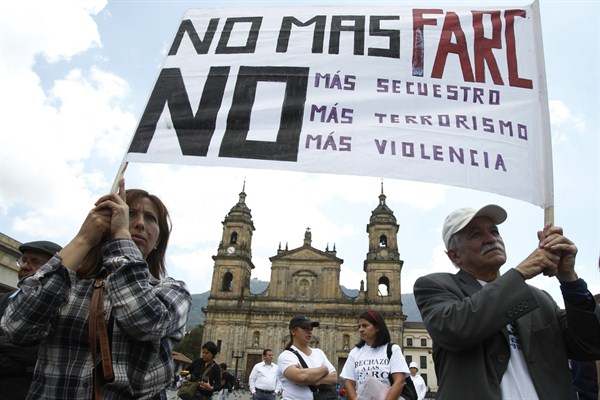Colombia’s conflict has always looked different from the vantage point of the jungles, mountains and plains of the country’s most forgotten corners. This is “the other Colombia”: a country of extreme poverty, underdevelopment and state neglect, where Marxist guerrillas have fought the military to a stalemate in over half a century of conflict—and where the peace agreement those rebels are currently negotiating will face its toughest tests.
“The country still has these ‘black holes,’ where the state has no monopoly on arms, where there is no institutional presence, no authorities, not even a military presence,” said Orlando de Jesus Avila Villegas, a human rights ombudsman in the guerrilla-plagued region of Bajo Cauca in Colombia’s northwest.
“[For there to be peace] they will have to reclaim these black holes, where it is other actors and not the state that monopolize power, arms and all economic activity.”

